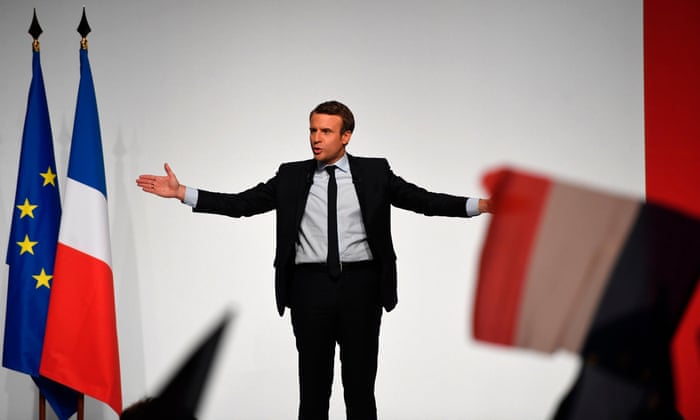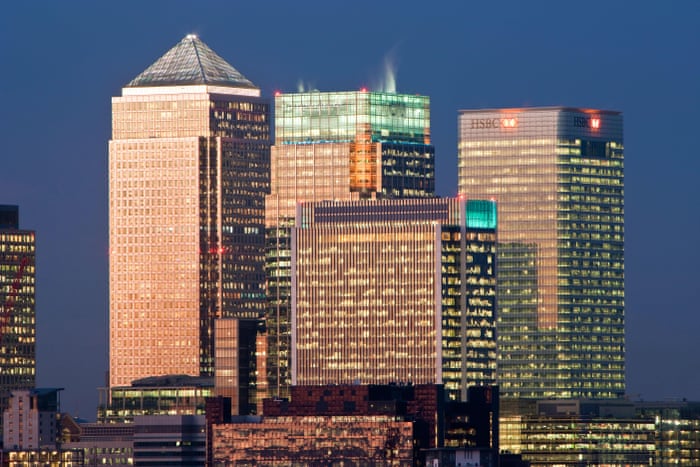What would Macron as France's leader mean for Europe?
May 08, 2017
A presidential win could offer a last chance for liberal reform of Europe but may prove bad news for Britain’s Brexit trade hopes

In a sign of how quickly European politics has moved, senior diplomats in the British embassy in Paris less than a decade ago held intense discussions about whether British officials could ever have a meeting with members of the French Front National. The party, then run by Jean-Marie Le Pen, was regarded as so off-limits as to be untouchable.
The embassy’s current occupants will doubtless be breathing a quiet sigh of relief that Marine Le Pen, Jean-Marie’s estranged daughter, is unlikely to make up a 20-point deficit to win the second round of the presidential elections, but know the alternative – the election of the almost romantically pro-European Emmanuel Macron – might prove to be an equally big diplomatic headache.
Macron’s presidency may turn on his ability to push through domestic reforms, but in his campaign he has set down unpalatable markers for London on Brexit and for the future shape of Europe, especially the revival of the long stalled Franco-German motor.
Macron – when pressed mainly by British reporters – has said he will not countenance a deal that allows the UK to act as Europe’s offshore tax haven with access to the single market. Like his one-time patron, François Hollande, he is determined no other EU country should believe Brexit is worth emulating. A former banker, he will also be tempted to lure many of his UK-based supporters back to France by making Paris an effective rival to the City of London.
But Macron’s ability to press this case depends largely on the relationship he manages to strike with Berlin. He visited Germany twice during the campaign and in a 70-minute lecture delivered in English at Humboldt University in Berlin in January, he promised to end the mistrust and deadlock that had disfigured the Franco-German axis.
Some French economists see Macron’s grand plans for the reform of the eurozone, a common budget, a finance minister, European defence and a multi-speed Europe as the kind of boilerplate Euro-vacuity produced by the French foreign ministry for generations. They say it has been rejected repeatedly by German governments. “Most just yawn and wait for the next item of business,” said one European commission economist.

But others such as Sylvie Goulard, one of Macron’s foreign policy advisers, say Macron is deadly serious. A window of opportunity for reform exists in the wake of the French and German elections that might be the last chance for the liberal centre to reform Europe.
In his Berlin speech he argued that a dysfunctioning euro helped Germany, adding that a lack of trust between France and Germany was blocking major reforms that would increase solidarity among the 19 members of the currency union.
“The truth is that we must collectively recognise that the euro is incomplete and cannot last without major reforms. It has not provided Europe with full international sovereignty against the dollar on its rules. It has not provided Europe with a natural convergence between the different member states.
“The euro is a weak deutsche mark,” said Macron. “The status quo is synonymous, in 10 years’ time, with the dismantling of the euro.”
His ideas for reform of the euro, first set out with the German SPD politician Sigmar Gabriel, challenge Berlin’s adherence to trade surpluses, which he has described as unsustainable. Many of his proposals remain vague but Macron has been honest enough to acknowledge Berlin will only listen to Paris if France first establishes its credibility through economic reforms.
But many analysts doubt Macron will gather the political authority to push his pro-European agenda in France, let alone Germany. French economist Charles Wyplosz said there was not the broad support for reform and only two candidates in the first round presidential vote, Macron and rightwing candidate François Fillon, made the case for it.
“The good news is that Macron and Fillon won 50% of the vote, but the bad news is that 50% of the French people still have no idea about what needs to be done, and that poses questions about what happens next,” Wyplosz said.
“France has been in the slow lane for decades, losing political influence in Europe, largely because there have been these arrangements where everyone has these privileges that they have been skilled at protecting. Macron has to confront powerful forces that often by putting 2 million people on the streets have won every battle in the last decade.”
But Macron’s domestic fragility places a responsibility on Germany to help him. Ronja Kempin, a researcher at the German Institute for International and Security Policy, says it is necessary for Berlin to plan for around 2022, when there is a real risk of a Front National victory in the second round. “If France falls, Germany will find herself alone. To avoid this, Berlin will have to make clear economic and ideological sacrifices.”
Source: Guardian News